How is the life of a rural Udupi-based cook?
The first thing that comes to the mind of people when we speak about Udupi is the chain of restaurants that are located all around Karnataka and even outside. Famously called Udupi Bhattaru (Udupi cooks), these people are known for their ability to cook tasty food.
If you have lived in Bangalore, you will know by now that there are countless Udupi-based restaurants in the city. The chefs and cooks for all these restaurants come from remote places in the Udupi district to make a living.
On my all-India cycle tour, I got the opportunity to meet one such person who has worked as a cook at hotels and restaurants all his life starting from the age of 9.
I accidentally met Sanjeev Nayak at the remote village of Byrampalli, located in the Udupi district, when I was resting at a nearby bus stop to let the heat of the sun pass.
Sanjeev, 62 years young, was carrying water from a closeby well to his house located around a Km away. He did that 18 times!
Speaking with him and also luckily having to be invited to his house after making friends with him, I realized how the lifestyle of many of these Udupi-based cooks could be, who work at restaurants in Bangalore.
Table of Contents
ToggleHow do Udupi cooks come over to Bangalore for a job?
Sanjeev Nayak was born into a large family of 11, with 8 other siblings. His father was a construction site worker who managed to purchase 1.5 acres of land by working all his life. He constructed a house in it where all 11 members of the family lived. Today the house has Sanjeev, his wife, and his daughter living in it.
Of the 8 siblings, he has 6 younger sisters, one younger brother and an elder brother. At the time, poverty was such that Sanjeev had to quit schooling and start working at the age of 9. As his uncle ran a hotel at Dodballapur, near Bangalore, he moved there to start earning early. From there he has moved from hotel to hotel as a cook at different places in Bangalore. Dasarahalli and Majestic are a few places among the many.
Sanjeev said today he feels it was the right thing to have done. With the money he earned working in Bangalore, he was able to get his 6 sisters married.
Living conditions of Udupi-based cooks who come over to Bangalore for a job
The house in which Sanjeev lives currently is the same house that had 11 people living in it once. It is extremely hard to imagine how 11 people could fit into the house. Taking a look around, I realized that the house has only one small room and a kitchen. The washroom to date is an open washroom.
As all his 6 sisters are married, his younger brother has settled elsewhere, and his elder brother is no more, ideally, Sanjeev must have inherited the house for himself. Unfortunately, his elder brother’s wife has two children who are claiming the land and the house.
Sanjeev being an uneducated individual does not have the papers to the land and is unaware of how to proceed on the litigation issues.
To avoid any further issues, he has decided to build a house right beside the current one which should cost him 4 lakh rupees. Since he does not have the papers to the land, he has also lost out on the 1.5 lakh allowance from the government that is allotted to the poor who intend to construct a house.
Sanjeev continues to work as a cook during events, his wife works as a daily wage labourer earning 600 rupees a day, and his daughter works at a papad/happla factory for 450 rupees a day. Sanjeev also receives rupees 1,200 each month from the government for the last couple of years. Together they have been pitching in money to be able to build the house. 2 lakhs out of the 4 has been paid off right now.
Interestingly, when I asked what his daughter has studied, he replied saying she has completed her B.Com degree. It was surprising how the girl could complete her degree residing at a house where neither electricity nor water was available only until 4 years back! He said she studied under a lamp and travelled to closeby city for studying using the government bus as a transport facility.
Electricity
Since Sanjeev’s daughter is educated, they wrote innumerable letters to the electricity board requesting electricity. Neither the electricity board nor the district commissioner’s office gave him a positive reply. Each time he went there requesting electricity, he was turned down because of the lack of land papers.
Until only 4 years back, Sanjeev, his wife, and his daughter lived in the house without electricity. They used solar lights which last 4 hours on charge and lamps to make up for the lack of a light source. Firewood was used before and continues to be used to cook and heat water.
Finally, after several requests, when the election took place the previous time, his requests were considered seriously. 2 electricity poles have been put up providing electricity to his house.
Today, Sanjeev pays as little as only 100 rupees a month as electricity charges.
Water
An abandoned government well has turned out to be a boon for Sanjeev’s family. Every day Sanjeev has to carry water in large vessels 18 to 20 times walking 1 Km to his house. The issue he faced with electricity, he is facing with water right now.
Other living conditions
Sanjeev and his family continue to live in old-age times. The phone he operates is the one we must have used a decade and a half ago. He said there has to be a phone number for the house and so he and his wife have a phone kept in the house. They still write down phone numbers in a book which they look into while dialling.
Sanjeev said he has not ridden a bike or a car even once in his life. He had a cycle that he used to use before. As the expense to have it repaired often increased, he had it sold to a scrap dealer.
He does not have a TV or read the newspaper. He listens to music on the radio for entertainment. When I visited his house, he had it put on to create an ambience for us.
To be able to catch a bus to go to the city requires extreme patience. There is a bus once every single hour. But it arrives in an untimely fashion. Sanjeev said that on the weekends one can expect to wait for as long as 2-3 hours to be able to catch a bus. As I had pulled over at a bus stand to avoid the sun, I could see for myself that a lady and her daughter waited for more than an hour to be able to catch a bus. I can only imagine how Sanjeev’s daughter must have managed to go to and fro from the college for her education.
Individuality of a rural Udupi-based cook
Sanjeev saw me waiting in the sun and called me over to his house for tea. That was an extremely kind gesture. The house he lived in didn’t seem to have much. Even the milk was stored in water in a vessel hanging from the ceiling. He offered me one biscuit and one rusk piece, apologizing to me saying that’s all he could afford. My heart melted looking at his kindness amidst his difficulty.
I asked Mr Sanjeev a couple of questions to assess his mindset and thought process.
Justification
Sanjeev seemed rather content with how his life had proceeded. He justified his hardships for the good of having his sisters married and his daughter educated. His family was more important to him than the improvement of his life alone.
Validation
Sanjeev said the only place he visits is a shop he goes walking to in the evening. It also allows him to go for a walk post-dinner. He said he doesn’t have many friends and doesn’t intend to as well. At the shop he only spends little time speaking about current affairs he isn’t updated about.
Complaints
The only complaint that Sanjeev seemed to have was that he doesn’t have his house built yet. The litigation issues seem to have hurt him more than anything. He somehow wanted to have his daughter’s life settled. Constructing the house should help him provide her with that.
Materialism
When I asked Sanjeev what he would do if I gave him 100 rupees, he said he wouldn’t take it. He seemed to be a man of authenticity. He only wanted to earn his own money. He didn’t seem to mention properly to me what he would do if he got more money. One thing I realized after speaking with him for a long time was that he had a dream of having a small provision shop built that he can run for a living.
Apart from all this, Sanjeev also seemed to be a huge devotee of God. He constantly kept asking me to go to Waranga Basti which is an old temple ahead in my journey.
If you want to know about how life is in a remote forest in Karnataka, read this article.
I am a 31 year young PhD graduate who has decided to travel the length and breadth of India on my cycle, to document the journey of meeting a vast array of people. In my journey, I intend to understand the characteristic features of the people of this nation and categorize them based on their demographics, age, profession, gender, traditions, and cultural differences.
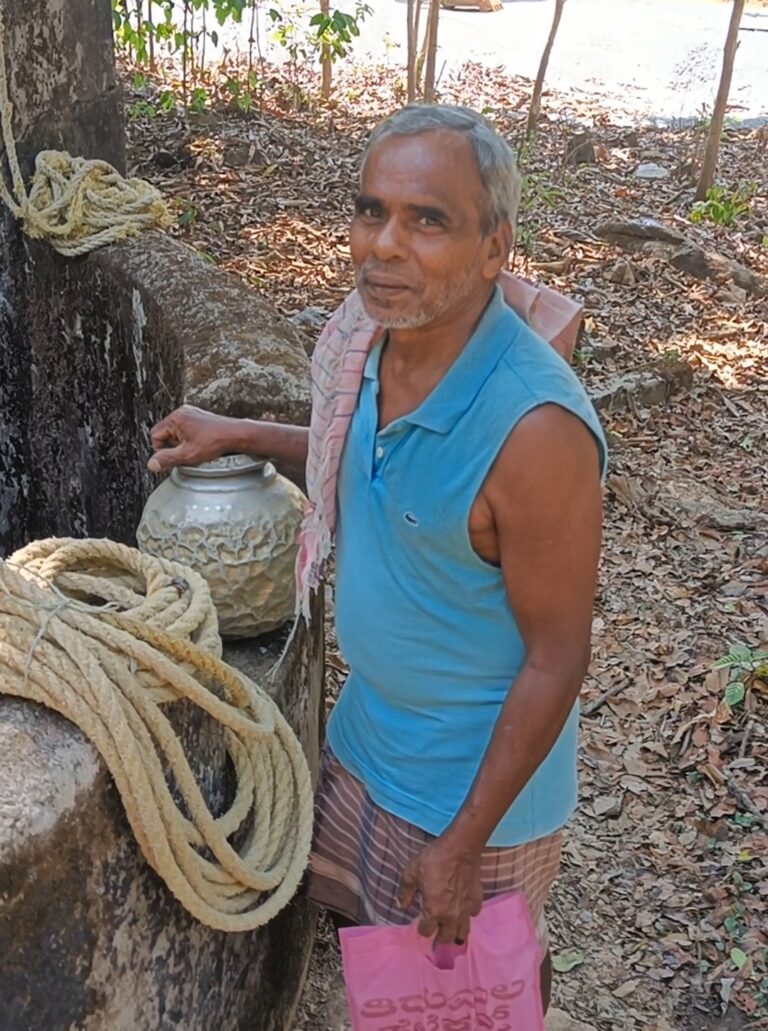
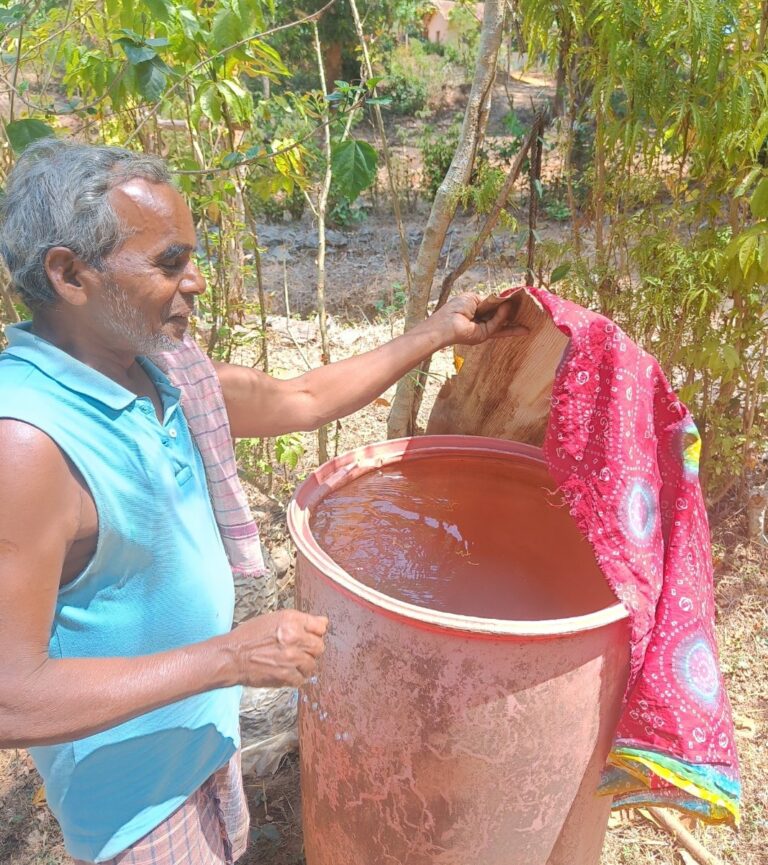
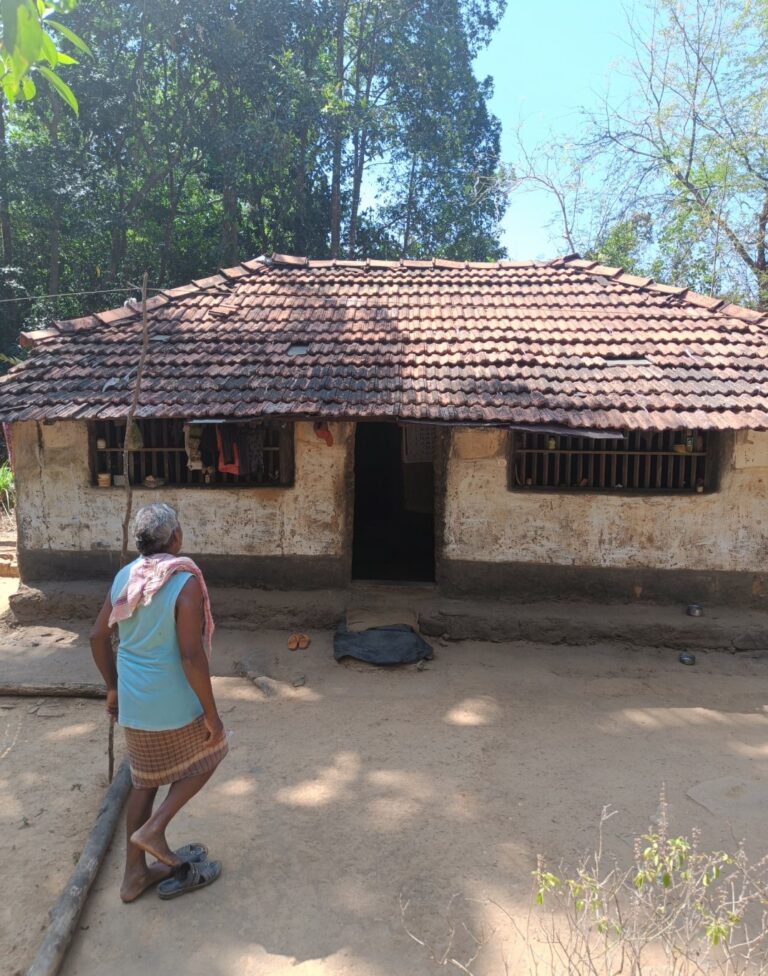
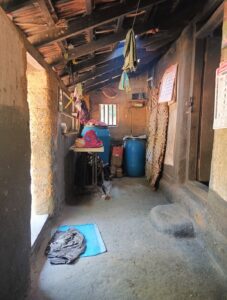
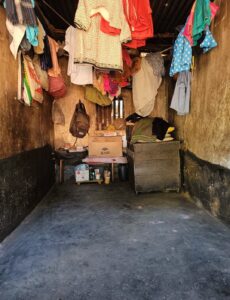
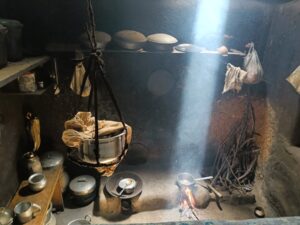
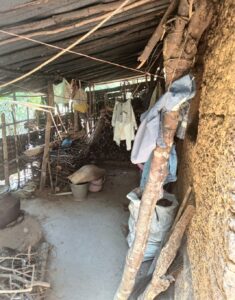
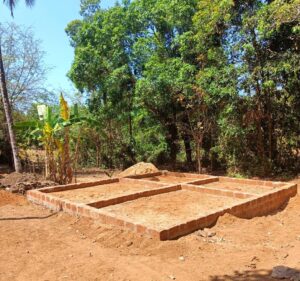
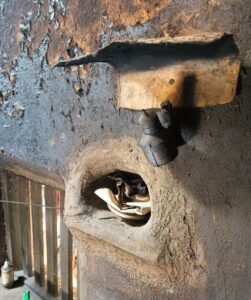
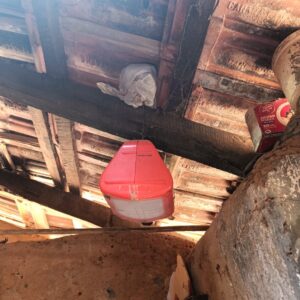
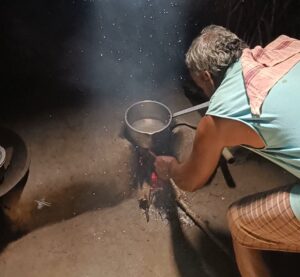
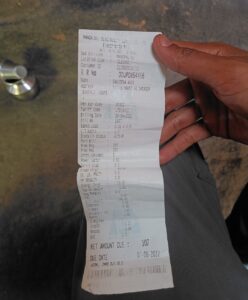

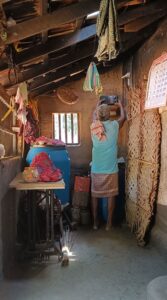
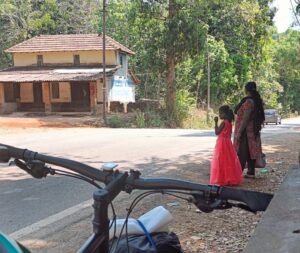
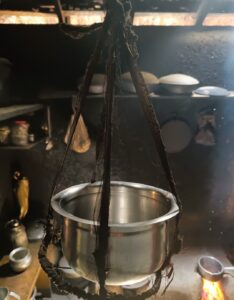
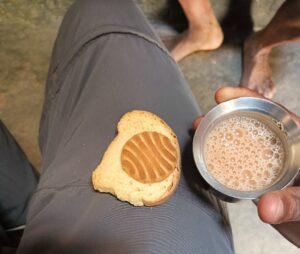
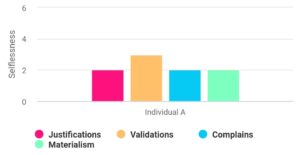
Its heartbreaking to see people struggle to have a life we or rather I take for granted. Hope stories like this inspire me to do something for the society. More stories like this might help me overcome my selfishness and develop some gratitude towards life. Thanks for telling the story of Mr. Sanjeev Nayak